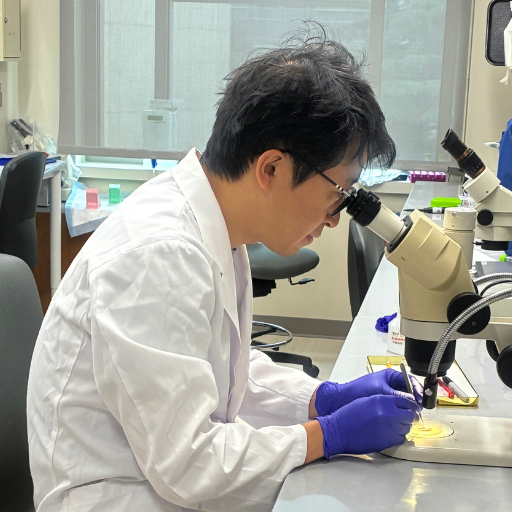Tracking How Rare Eye Immune Cells Respond to Damage in Age-Related Macular Degeneration

About the Research Project
Program
Award Type
Postdoctoral Fellowship
Award Amount
$168,917
Active Dates
July 01, 2023 - September 30, 2025
Grant ID
M2023013F
Mentor(s)
Brian Hafler, MD, PhD, Yale University
Goals
This project aims to expand our understanding of how immune support cells in the retina react to damage in age-related macular degeneration.
Summary
A kind of immune cell that is rare in the retina may harbor important information about age-related macular degeneration. These cells, called microglia, offer immune support for nerve cells. Because of their rarity in the retina, studying how they react to the damage of age-related macular degeneration is difficult. To address this issue, Abdelilah Majdoubi, PhD, and his colleagues plan to conduct a finely tuned genetic analysis of an unusually expansive bank of tissues to pinpoint microglial gene-related factors in retinal inflammation. They also want to characterize different populations of microglia in the retina and determine what their roles are.
Dr. Majdoubi’s team has unique access to several important sources of tissues for their work, which they expect will ensure the volume they need to detect these rare cells in the retina and characterize them. The resulting information is expected to offer treatment targets, especially related to the C3 complement pathway, an immune response pathway that is closely implicated in age-related macular degeneration. Overall, their studies will offer significant insights into the role of inflammatory microglia in age-related macular degeneration, including ways to leverage the responses of these cells to control progressive vision loss.
Unique and Innovative
This project uses deep single-cell RNA sequencing to identify key genetic factors within rare subsets or microglia that play a critical role in inducing and maintaining an inflammatory environment in the retina. Originally, our lab had excess eye banks from Yale Haven Hospital as well as another eye bank in Alabama and Minnesota.
Foreseeable Benefits
Once our aims are done, we will gain significant insights into the understanding of the role of inflammatory microglia in AMD and the molecular mechanisms leading to microglia-induced inflammation, we can target this to control the progressive loss of vision to improve the quality of life of patients suffering from AMD.
Related Grants
Macular Degeneration Research
Microglia’s Roles in AMD to Inform Therapies for Vision Loss Prevention
Active Dates
July 01, 2025 - June 30, 2027

Principal Investigator
Nobuhiko Shiraki, PhD
Current Organization
Duke University School of Medicine
Macular Degeneration Research
How Aging of the Immune System Affects Age-Related Macular Degeneration
Active Dates
July 01, 2025 - June 30, 2028

Principal Investigator
Masayuki Hata, MD, PhD
Current Organization
Kyoto University
Macular Degeneration Research
The Novel Role of an Intracellular Nuclear Receptor in AMD Pathogenesis
Active Dates
July 01, 2024 - June 30, 2026

Principal Investigator
Neetu Kushwah, PhD
Current Organization
Boston Children’s Hospital



